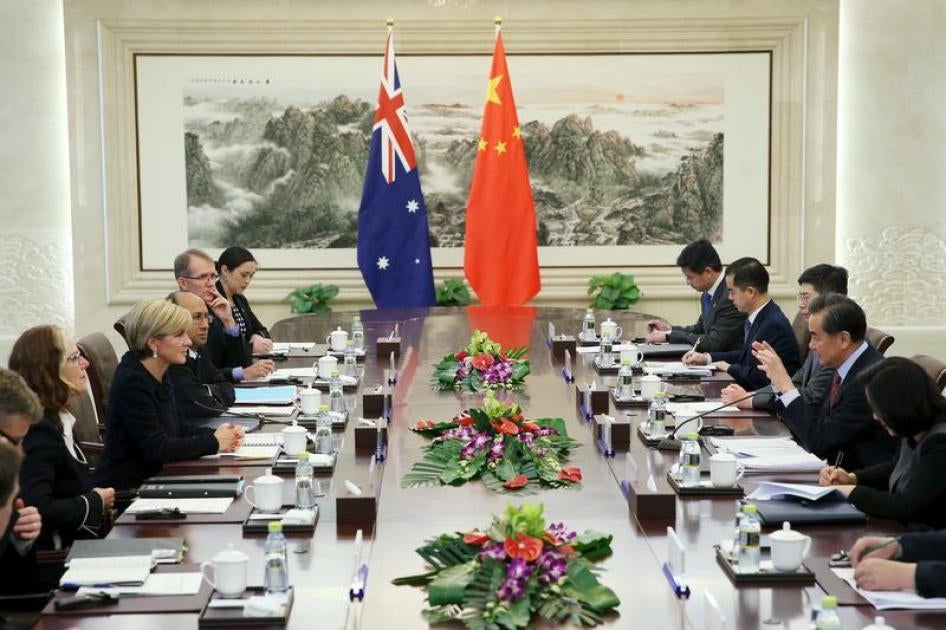Chinese Premier Li Keqiang will land in Australia for an official visit later this week. On the eve of his visit, Australia’s Foreign Minister Julie Bishop delivered an unusually sharp warning to China on its need to move towards democracy. “While non-democracies such as China can thrive when participating in the present system…[h]istory shows that the embrace of liberal democratic institutions is the most successful foundation for nations seeking economic prosperity and social stability,” Bishop said during a speech in Singapore on March 13.
|
Dispatches
What Australia Needs to Ask When China Visits
Australia’s Foreign Minister Should Use Premier Li’s Visit to Address Human Rights
Your tax deductible gift can help stop human rights violations and save lives around the world.
Region / Country
Most Viewed
-
January 16, 2026
Iran: Growing Evidence of Countrywide Massacres

-
September 30, 2024
“They Destroyed What Was Inside Us”

-
January 23, 2018
Hidden Chains

-
October 29, 2019
“Maximum Pressure”

-
November 25, 2019
A Dirty Investment





